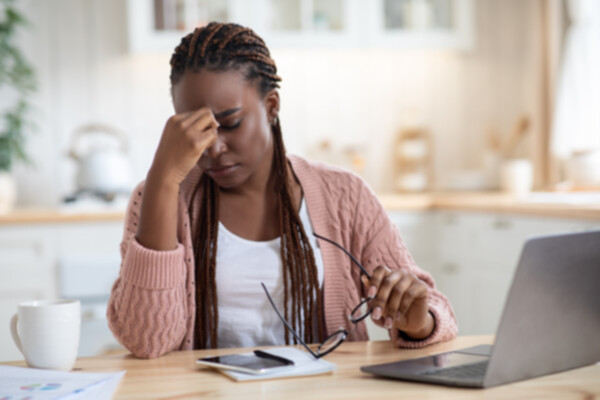How to de-stress? What to do to de-stress? Discover the most effective strategies to relax and end stress.

Feeling stressed nowadays is completely normal due to our way of life. In fact, it is important know how to de-stress because there can be many triggers that can generate a state of nervousness and stress. By frequently experiencing the physiological reactions of stress, people can end up suffering from chronic pain, headaches, muscle tension, anxiety, feeling overwhelmed, irritability and anger, among others.
How to de-stress?
Destress It’s not just about calming us down and making us feel better after a hard day. In today’s society, learning to relax and combat stress is very relevant for our physical and emotional health. To know how to relax and de-stress, we must keep in mind that stress can be managed in three different ways:
- Identify the problem: The most solution effective for de-stressing It is knowing what causes you this stress and eliminating it from your routine. Obviously, on many occasions we think that this is not possible. Likewise, we can always examine the situation to see a possible solution to the source of stress.
- Change our perception: Another of the ways to relax When faced with stress, it is trying to slow down our way of thinking to control these thoughts. That is, learn to identify those ideas that lead us to experience more stress and see it from another perspective.
- Relax your body: For destress our mind is also effective in learning to relax our body. Reducing the speed of our physiological processes in our body will make us feel calmer.
What to do to de-stress?
Given how can we destress there are some strategies that can help you put an end to your nerves and feelings of overwhelm:
- Go for a walk: A change of scenery and rhythmic movement can be very useful when you are fighting stress. This happens because you are making your nervous system adjust to new stimuli instead of focusing on stress. In fact, research has shown that people who took thirty-minute walks either in nature or in an urban environment reduced cortisol levels and improved their mood.
- Talk to a friend: Talking about what stresses you can bring you relief. The reason why this has de-stressing effects It’s because putting your internal experiences into words helps you solve problems. Additionally, by exposing the problem to your family or friends you can get advice on how to deal with it, or gain a new perspective that may be useful to you. This social support is great for improving your mood, which can make stress feel more manageable.
- Write it: Visualizing your thoughts in writing can also help relieve anxiety. In fact, one study revealed that those students who wrote down their concerns about their performance on a test before taking it scored higher on the test than those who didn’t write anything down. Additionally, research shows that writing in a stressful situation allows you to master the overwhelming thoughts typical of these moments.
- Help someone else: Even if it is a selfish motivation, helping someone can benefit both you and the person receiving this support. This is a good one strategy to de-stress Because when being kind to others our brain activates the same reward system as when someone is kind to you.

- Do exercise: Physical exercise is always good for us. So much so that you can help destress because it allows you to get rid of the thoughts that usually accompany stress. Therefore, walking, cycling or doing any sport makes us pay attention to our surroundings and break the cycle of stressful thought patterns that attract your attention.
- Go to your hobby: Distracting yourself with a hobby you love can lift your spirits and make you feel like you’ve accomplished something. These types of actions will allow you to fight against the feeling of nervousness or sadness that stress can bring.
- Read or watch a movie: Putting yourself in the mind of another person, whether through a book, movie, or series, can temporarily relieve you of a stressful state of mind. Additionally, comedies or horror can offer greater diversion from a stressful state.
- Perform a de-stressing relaxation: Relaxation strategies are a very powerful tool to reduce a feeling of stress or overwhelm. One of the most effective techniques is progressive muscle relaxation, which involves a process of tensing and relaxing different muscle groups.
- Be grateful: Taking time to focus on the things you have to be grateful for is a great way to relieve stress and gain perspective on life. In fact, one way to de-stress daily is to try to take a few minutes each day to think about the positive thing that has happened.c
Destress Not only does it feel good, it’s good for you. There is a notable increase in stress-related diseases in our society. If you think you suffer from too much stress, a professional psychologist can help you deal with these situations. For this reason, we must dedicate enough time to learning de-stressing strategies to avoid suffering from all the adverse effects that stress has on our mind and body.








